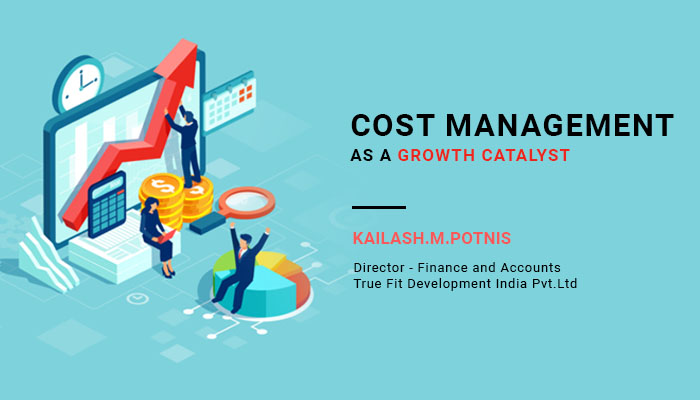While it is true that Chief Financial Officers can not control all their company’s cost structure, the way they proactively approach cost management and remove activities that drag down earnings can have a tangible impact on shareholder returns and contribute to sustained value-creating growth.
It is not uncommon for CFOs to have a knee-jerk reaction to cost management when threats such as recession looms , missteps in cost management often result in resources being diverted away from smart growth. In fact, from the below listed key cost mistakes, many of the companies exhibit at least one cost mistake that negatively impacts its performance.
- Cost equivalence: A majority of companies cannot differentiate between value-added and transactional costs, or fully understand which costs contribute to growth, with what frequency and predictability.
- Losing business commitment: Cost campaigns that fail to engage functional and line leaders face resistance and will be slower and less effective.
Generally, Companies typically approach growth by focusing on one of the three things:
- High growth: Trying to outpace the industry in revenue growth.
- Low costs: Minimizing costs as much as possible.
- Balanced approach: Balancing bottom- and top-line growth.
To have a balanced approach in times of uncertainty CFOs play an efficient role for managing the cost by using the below mentioned key positive cost management behaviour that directly contributes to healthy, long-term growth of the organization:
1. Develop a cost portfolio of business to prioritize the downsize – In an organization when there is a pressure to downsize the costs, apart from operating expenses focus is also on the opportunity driven capital expenditure which could set back the organization’s growth. In such scenario’s CFOs should develop a cost value portfolio of the businesses which would assist to prioritize the downsize based on their contribution to the business and financial strategy.
2.To explain the business economics and its way forward – Many finance-driven operating reviews rarely end with line management consensus on what needs to be done to tackle threats to the growth. Since CFOs are the best judge of the business hence, they must be transparent while explaining the way forward of the business and its impact to the board members.
Thus, looking at cost management behaviour, CFOs can have ‘first-do-noharm’ approach i.e identifying and correcting these behaviour should be a first-order priority.
Although currently, CFOs are operating in a challenging environment where costs have outpaced revenue, but the positive side is that CFOs have greater control of the situation than they might think, choosing to eliminate negative cost management practices while employing positive ones as stated above can have a significant impact on the bottom line.
This is exactly where the CFOs play a vital strategic role in the business.

Kailash.M.Potnis
Director – Finance and Accounts
True Fit Development India Pvt.Ltd
LinkedIn – https://www.linkedin.com/in/kailash-potnis-2147a015/
Hear more about cost management as a growth catalyst at the 19th Edition- CFO Leadership Summit


